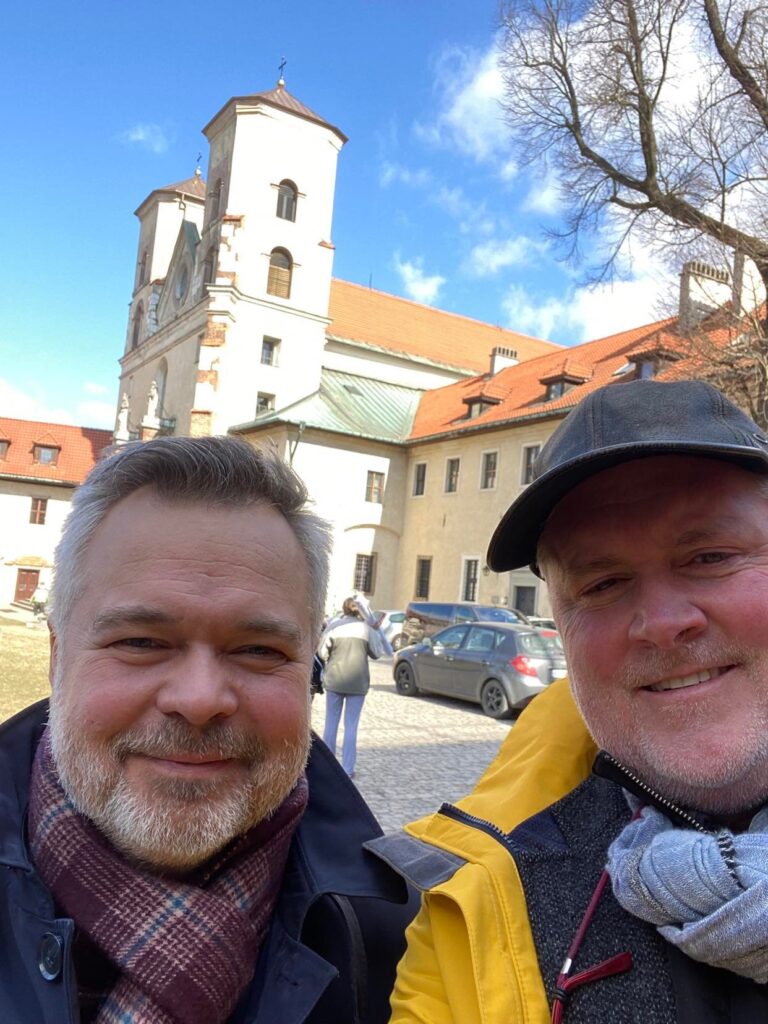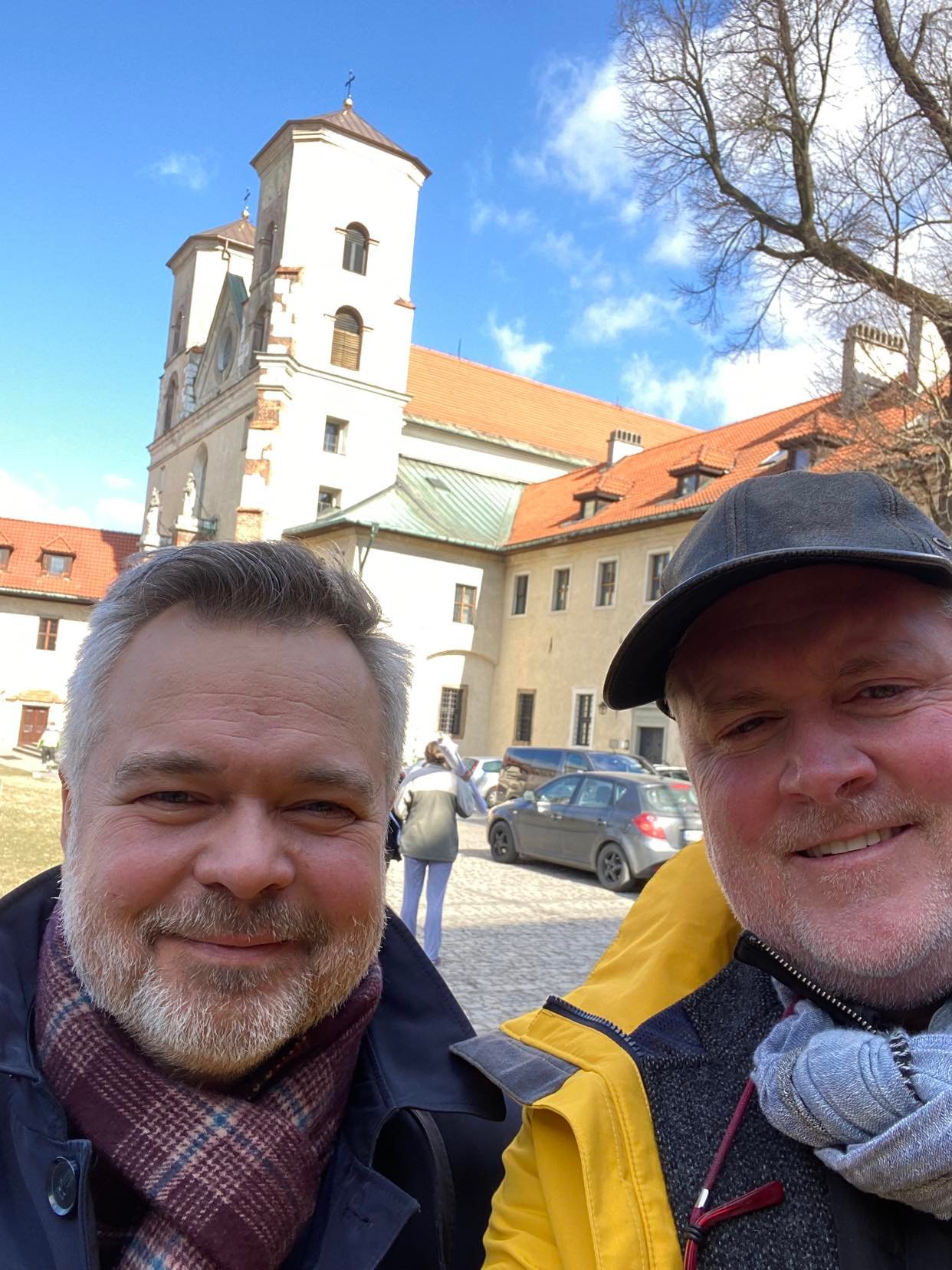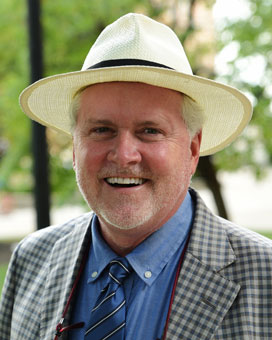Report 5 to Abbot James
The last two days I’ve spent in the company of Piotr Czekierda (picture below) and Michal Luczewski, co-founders of the Two Wings Institute (TWI). Teach the lessons of Polish Solidarity and the “transcendental frame” of leadership.

Defining Transcendental Leadership
TWI serves the common good of Poland beyond self-limiting partisanship by recognizing the common ground created and sustained by the reality of transcendence. When leaders function solely from the immanent frame, they become reductionistic, missing essential elements of the human person and her social project.
Transcendence prioritizes the role of culture and spirituality as a resources for leaders. Leaders are “anthropological maximalist “ who build people, who in turn build institutions and their programs.
This approach of “people building” is exemplified in their first two projects and their current mission:
Project 1: JPII’s Integral Leadership
JPII’s Integral Leadership – used the example of St JPII to teach “integral leadership.” Integral leadership seeks to keep binaries in creative tension rather than resolve those tension in a reductionistic and “heretical” manner.
Poland’s history is itself an example of integral leadership, that has held in tension poles apart. For example, Poles see (correctly in my opinion) the American character as Pelagian and the Russian character as Manichaean.
Poles respond by keeping these reductionistic tendencies in an internal dialogue through a robust Augustinianism.
For example, Poles believe deeply in original sin, but don’t believe original sin is “symptomatic of a deeper and darker problem.” There is always grace, and nature itself is graced, something Pelagians often forget.
Project 2: Treasures of Solidarity Project
TWI followed up that project with the “Treasures of Solidarity Project.” The family and religion were essential in the original Solidarity, though they are seen as controversial and retrograde today.
In the context of 20th C Solidarity, the domestic church is no longer seen as an ecclesial program but rather the core principles of social justice. The domestic church as the originating form of social justice, is on full display during this Ukrainian crisis.
Though Poland is in the process of receiving 1.2 million Ukrainian refugees, there are no refugee camps. Church, state and families are practicing the most radical form of hospitality I’ve ever seen on a large scale.
The Mission of the Two Wings Institute
The mission of the Two Wings Institute is to teach the lessons of Polish Solidarity and the “transcendental frame” of leadership to an ever widening circle of friends and allies.
I came to Poland to discern whether Benedictine Center for Family Life is one of those friends and allies. The Ukrainian crisis has been a heartbreaking but clarifying example of why TWI and the BCFL exist and if they didn’t exist would have to be created.

